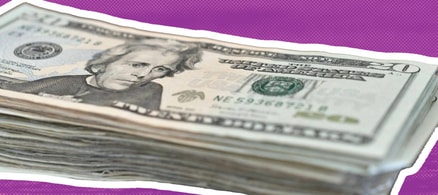1. You're dealing with a serious illness
If you are dealing with a serious illness, particularly one that is terminal, it makes no sense to keep your retirement plan intact for “someday.” Your someday is now, as in now is when you need funds.
The IRS does actually provide some relief in this regard, not from paying income taxes on the money withdrawn but by waiving the 10% penalty. If you're under the age of 65, the IRS will waive the penalty if the money is used to pay for medical expenses that exceed 10% of your adjusted gross income (AGI). This is not a hard threshold to get past, particularly with a combination of higher medical expenses and reduced income as a result of the illness.
This exemption applies to funds withdrawn from both a 401(k) plan or an IRA. The IRS also provides exemption from the 10% penalty in the event you are facing total and permanent disability. The penalty will be waived for funds withdrawn from either an IRA or a 401(k) plan.
2. You're facing financial oblivion
Though retirement funds are supposed to be dedicated specifically to your retirement years, they should be considered fair game if you’re facing substantial financial difficulties before retirement age. There’s no point in saving money for retirement if you are unable to pay for basic living expenses right now.
Such a difficult financial situation could occur for a variety of reasons, including a business failure or a prolonged period of unemployment.
If the financial distress is caused by a significant disruption in income, it’s entirely possible that the retirement plan withdrawals will be subject to little or no income tax, due to your low or nonexistent income. Unfortunately, the 10% penalty for early withdrawals will apply regardless of your income level.
If you have to take money out of retirement plans due to economic distress, make sure the plan trustee withholds at least 10% of the distribution, that way you’ll have the penalty covered when it comes time to file your income taxes.
It’s also worth noting that the IRS will exempt you from the payment of 10% early withdrawal penalty if IRA funds are used to pay for health insurance premiums while you are unemployed. However this exemption applies to IRAs only, and not 401(k) plans.
3. You can avoid the 10% early withdrawal penalty
There are also situations where you can take funds from your retirement plan prior to age 59 ½, and still be exempt from paying the 10% early withdrawal penalty. This may be a consideration if your income tax bracket is lower now than it was at the time you made your retirement contributions.
Withdrawal of contributions from a Roth IRA. You can withdraw the amount of funds you contributed to a Roth IRA at any time. Not only is there no 10% early withdrawal penalty on the distribution, but there’s no income tax liability either, since there was no tax deduction when the contributions were made. However, any amount withdrawn from funds constituting earnings on those contributions will be subject to both income tax and the penalty, any time the funds are withdrawn prior to turning 59 ½.
Substantially Equal Periodic Payments programs, or SEPPs. A SEPP program will allow you to withdraw funds from either an IRA or 401(k) before turning 59 ½, without having to pay the 10% early withdrawal penalty (though income taxes on the distributions will still apply). There are three different ways to calculate withdrawals under a SEPP:
- Required minimum distribution method,
- Amortization method, and
- Annuitization method
For more information on SEPP withdrawals, see Retirement Plans FAQs regarding Substantially Equal Periodic Payments on the IRS website.
Separation from Service by age 55 or older. If you are separated from employment for any reason — through retirement, employer termination, or voluntary quit — you can withdraw money from a 401(k) plan free from the 10% early withdrawal penalty, as long as you're age 55 or older. Once again, you will still have to pay income taxes on the amount withdrawn. Also, SEPPs don’t apply to IRAs since they aren’t employer-sponsored.
The caveat here is that the penalty exemption applies only to funds withdrawn from the employer plan sponsored by the employer at the time of your separation. Withdrawals from plans sponsored by previous employers are not eligible for the exemption.
This should make a strong case for rolling over any previous employer plans into your current employer plan if you are 55 or older.
While it's hardly ever a good idea to forfeit some of your hard-earned savings by paying an early withdrawal penalty or outrageous taxes on the funds, there are certain times when you could withdraw retirement funds early and it make sense.








